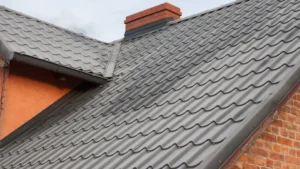
When it comes to eco-friendly heating options, biomass pellet boilers are quickly gaining popularity. Unlike traditional gas or oil heating systems, these boilers use wood pellets for boilers, making them a sustainable alternative. Let’s explore what makes them a great choice and how they differ from typical pellet fireplaces that are commonly found in living rooms.
Biomass pellet boilers offer a clean and efficient central heating solution. They’re not just for keeping you warm; they’re also designed to be easy to operate and maintain. But what really sets them apart is their environmental impact. Since they rely on wood pellets, they essentially use byproducts from the timber industry, like damaged wood, shavings, and sawdust. This makes them not only renewable but also supportive of the regional circular economy.
Let’s discuss why choosing a biomass pellet boiler could be the smartest decision for both your home and the planet.
What Makes Biomass Pellet Boilers Eco-Friendly?
One of the best things about biomass pellet boilers is that they don’t contribute to deforestation. The pellets they use are made up of 90% timber waste, which would otherwise be discarded. By using these byproducts, pellet heating systems offer a climate-friendly solution that aligns with sustainability goals. And because wood is a renewable resource, heating with pellets is essentially CO2-neutral.
Not only are these boilers environmentally friendly, but they also have the added benefit of being cost-effective. The KWB pellet heating system, for instance, uses an underfeed burner, which burns pellets highly efficiently, maximizing heat output and minimizing waste. This means you get to keep warm without breaking the bank.
What Does a Biomass Pellet System Consist Of?
Curious about what makes up a biomass pellet boiler system? Let’s take a closer look. At its core, a pellet boiler system is designed for durability and efficiency. It starts with a stable housing and includes a heat-resistant combustion chamber where the pellets are burned. A stoking screw feeds the pellets into the combustion chamber, and a cellular wheel sluice ensures the fuel is delivered safely without risk of fire traveling back into the storage area.
For clean operation, these systems have an ash extraction setup to remove residual ash from the combustion process, along with a self-cleaning heat exchanger that transfers heat to the water used for central heating.
Another key component is the pellet storage and conveyance system. The pellets need to be stored in a dry, dust-free environment, and these systems are designed to accommodate that. For those switching from oil to wood, it’s usually a straightforward process. The old oil tank is removed, and the pellet storage room is set up in the same space. Even if your basement is humid, there are solutions like the KWB Big Bag, a type of sack silo, or a sheet metal tank.
What Are the Advantages of Biomass Pellet Boilers?
Let’s talk about why you’d choose a biomass pellet boiler over other heating systems. One major advantage is ease of transport and installation. These boilers are designed to fit into tight spaces, making them suitable for various types of heating rooms. Thanks to KWB’s modular design, the system can be dismantled into smaller modules, making it easier to transport and set up.
Another significant advantage is the fully automatic and convenient operation. A KWB pellet boiler system practically takes care of itself. It automatically fills with fuel, ignites, and even cleans itself. The only maintenance required is emptying the ash box once or twice a year, depending on usage.
The combustion process is also exceptionally clean and efficient. The patented underfeed burner system ensures that the combustion is stable and minimizes dust. This not only keeps emissions low but also ensures that the pellets burn completely, reducing waste. The system’s broadband lambda probe constantly monitors and optimally controls combustion, which means you’re not wasting fuel.
Finally, the online control and maintenance options are a game-changer. With a simple dial and touch display control, you can manage your heating system. But it gets even better: you can control and maintain your boiler remotely using a smartphone, tablet, or PC. If needed, you can even give temporary access to a heating installer or KWB Customer Service for remote support.
Is a Biomass Pellet Boiler Right for You?
So, should you consider a biomass pellet boiler for your home? If you’re looking for an environmentally friendly, cost-efficient, and low-maintenance heating system, it’s worth exploring. They offer an excellent alternative to gas and oil, with the added benefits of being renewable and supporting the circular economy.
If you have questions or want to discuss more about biomass pellet boilers, I’d be glad to dive deeper into the topic. How can I help you take the next step toward a more sustainable heating solution?







